Heber J. Grant
Time Line of Life Events
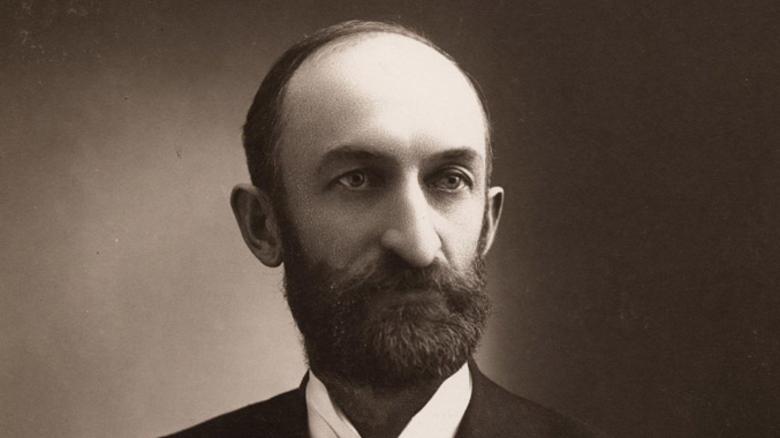
Born in Salt Lake City, Utah, to Rachel Ridgeway Ivins and Jedediah Morgan Grant.
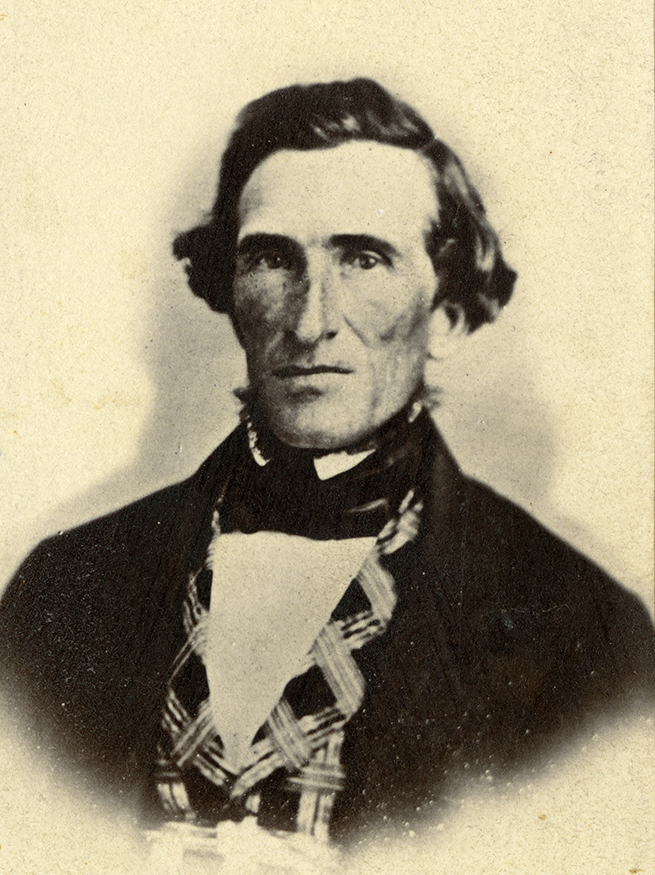 Father, Jedediah M. Grant—Second Counselor to Brigham Young and first mayor of Salt Lake City—died.
Father, Jedediah M. Grant—Second Counselor to Brigham Young and first mayor of Salt Lake City—died.
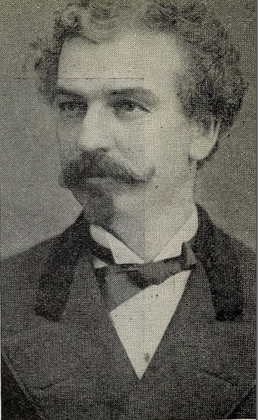 Befriended by Alexander G. Hawes, an insurance agent and boarder at the Grant home who was not a member of the Church.
Befriended by Alexander G. Hawes, an insurance agent and boarder at the Grant home who was not a member of the Church.
“He became, without any exception, the dearest and best friend that I had in all the world, aside from my own people. . . . He treated me almost like a father.”
Ordained as a seventy, then still a common priesthood office.
Hired at age 15 as a bookkeeper at the H. R. Mann insurance company, fulfilling an early career goal.
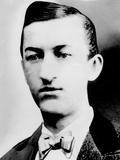 Became a counselor in the first Young Men's Mutual Improvement Association formed in any ward.
Became a counselor in the first Young Men's Mutual Improvement Association formed in any ward.
Joined the close-knit Wasatch Literary Association, whose members included his future wife Emily Wells, future Apostles Orson F. Whitney and Rudger Clawson, future Young Women’s president Martha Horne Tingey, and others.
Bought the H. R. Mann company from his employer, making him a business owner for the first time.
Married Lucy Stringham in the St. George Temple.
Became a father with the birth of Susan Rachel Grant, the first of his 10 daughters and two sons.
Became secretary in the general Young Men's Mutual Improvement Association leadership.
Called to preside over the Tooele Utah Stake.
“From the day that I became the president of the Tooele Stake of Zion, in 1880, I have desired to know the mind and the will of the Lord. In humility and prayerfulness I have sought for [it].”
Ordained as an Apostle by President George Q. Cannon following his calling in an April 13 revelation to President John Taylor.
Served missions to native tribes in Sonora, Mexico and the southwestern U.S., including the Yaqui, Navajo, and Hopi.
Married Augusta Winters in the Endowment House in Salt Lake City.
Married Emily Wells in the Endowment House in Salt Lake City.
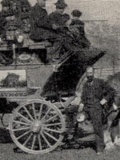 Founded Grant Brothers’ Livery, a cab business, to provide Salt Lake visitors with information about Mormons from Mormons.
Founded Grant Brothers’ Livery, a cab business, to provide Salt Lake visitors with information about Mormons from Mormons.
Death of Lucy Stringham Grant.
Traveled to New York to secure loans that enabled the Church to weather a nationwide financial crisis.
Helped found the Improvement Era magazine and became its business manager.
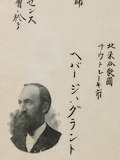 Opened the Japanese Mission and presided there until 1903
Opened the Japanese Mission and presided there until 1903
Arrived in Britain; presided over missionary work in Europe until November 1906.
"I got nearer to the Lord, and accomplished more, and had more joy while in the mission field than ever before."
Dedicated a Church-constructed meetinghouse, conference center, and mission home in Stockholm, Sweden, as part of the first major wave of Church building in Europe.
Death of Emily Wells Grant.
Succeeded Joseph F. Smith as President of the Church, calling Anthon H. Lund and Charles W. Penrose as counselors.
“When I first came to the Presidency the thought of the responsibility that rested upon me was overwhelming and for several weeks it was impossible for me to obtain my needed rest.”
Sustained at General Conference (which was postponed until June because of an influenza epidemic).
Spoke in support of forming the League of Nations, countering arguments that the scriptures were against it.
Dedicated the Laie Hawaii Temple.
Added Word of Wisdom observance to temple worthiness requirements.
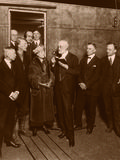 Dedicated Utah’s first radio station, and delivered a message over the air.
Dedicated Utah’s first radio station, and delivered a message over the air.
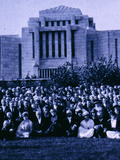 Dedicated the Cardston Alberta Temple.
Dedicated the Cardston Alberta Temple.
Spoke on the first radio broadcast of General Conference.
“The radio is one of the most marvelous inventions man knows anything about. To have the voice carried for thousands of miles seems almost beyond comprehension.”
Oversaw the establishment of the Salt Lake Missionary Home, forerunner of the Missionary Training Center.
Called J. Wyley Sessions to organize and lead the first institute program, at the University of Idaho in Moscow, Idaho.
Dedicated the Mesa Arizona Temple.
Issued a proclamation celebrating spiritual and technological progress in the first century of the last dispensation.
Dedicated the Douglas Street Chapel in El Paso.
"We dedicate it all unto thee for holy purposes, and we pray that when thy servants and their friends gather here they may do so under the inspiration of thy Spirit...Bless the people when they assemble in this building for recreational purposes. May they come here with grateful hearts and with reverence."
Disappointed by Utah’s vote to end prohibition.
Church Security Plan (later called the Church Welfare Program) began.
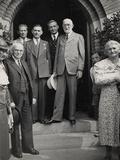 Celebrated the 100-year anniversary of the Church in Europe by visiting congregations there.
Celebrated the 100-year anniversary of the Church in Europe by visiting congregations there.
Prayed in general conference for those who had lost or would lose family members during the war.
Suffered a stroke that reduced his physical capacity during the last five years of his life.
“The doctors said it was not a paralytic stroke, but it must have been a second cousin at least.”
Expressed gratitude in general conference for the sympathetic portrayal of Latter-day Saints in the Hollywood film Brigham Young.
Issued a letter to Latter-day Saint soldiers, urging them not to give in to hatred even when on the battlefield.
With his counselors, J. Reuben Clark and David O. McKay, issued a formal First Presidency statement on war during general conference.
Died in Salt Lake City, Utah.